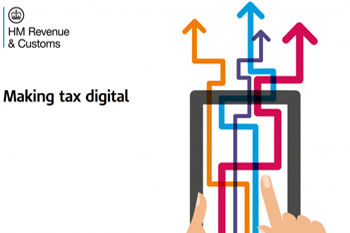Confused by HMRC's Making Tax Digital (MTD)? What does Making Tax Digital really mean?
MTD will fundamentally change the administration of the UK tax system. MTD will involve individuals and businesses using their personalised digital tax account or commercial software to report their taxes digitally to HMRC more often than once a year.
Under MTD HMRC will join its internal systems so creating one account for each taxpayer for all their different taxes. Via a 'digital account' taxpayers will be able to view all their payments, and offset overpayments in one tax against underpayments in others.
The system will impose new quarterly filing and possible payment obligations. It is understood that the first phase of MTD will affect small businesses and landlords with the second phase affecting VAT. The third phase will affect companies, although not until 2020.
A new late filing and payment penalty system will eventually apply to quarterly returns and annual declarations. HMRC claims that the annual tax return will be no more, but businesses will still need to prepare year end accounts filing a year end declaration, instead of a Self Assessment (SA) return/ Corporation Tax (CT) return.
For the self-employed, it is assumed that HMRC might attempt to pre-populate the year-end declaration with data submitted in the quarterly return figures. This is unlikely just yet, and so as if already the case with VAT, a business will still need to reconcile their quarterly returns to their year-end accounts and so all must reconcile to the end of year declaration.
What does this mean for me?
If you are VAT registered, then you need to start planning for this change as you will have to start filing with MTD-compatible software by April 2019. This means that you will have to keep digital records in a format suitable for HMRC to ensure that you comply with the requirements.
Even if you are not VAT registered you need to start thinking about how the change is going to affect you. We would strongly suggest that you think about managing the change from your existing record keeping to a digital solution that will leave you compliant with the new legislation.
Topics
Archive
- 2024
- March 2024 (1)
- January 2024 (1)
- 2023
- December 2023 (2)
- November 2023 (2)
- September 2023 (2)
- August 2023 (1)
- July 2023 (3)
- June 2023 (3)
- May 2023 (2)
- April 2023 (1)
- March 2023 (4)
- February 2023 (2)


Comments for Confused by HMRC's Making Tax Digital (MTD)? What does Making Tax Digital really mean?